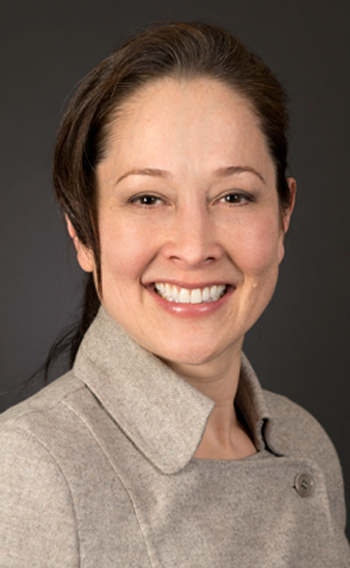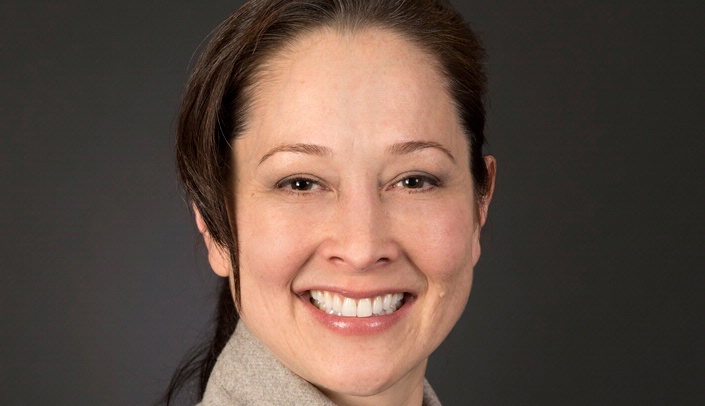 |
Sarah Thayer, M.D., Ph.D. |
- Name: Sarah Thayer, M.D., Ph.D.
- Title:
- Associate director for clinical affairs & physician-in-chief, Fred & Pamela Buffett Cancer Center
- Chief, UNMC Division of Surgical Oncology, College of Medicine
- Merle M. Musselman Centennial Professor of Surgery
- Joined UNMC: May 2014
Research focus:
- Pancreatic cancer
- Stem cell compartment
- Cell of origin of pancreatic cancer
- Circulating tumor cells
The focus of my research is to investigate genes that may contribute to the initiation, progression and regulation of pancreatic cancer. My early work focused on the role of a developmental gene, Shh, in pancreatic cancer and revealed that it is upregulated early in pancreatic carcinogenesis and in response to chronic inflammatory injury. Shh was thought to play an early role in the initiation and a late role as an important driver in pancreatic cancer. As such, this work was taken from bench to bedside with multiple companies developing new drugs against this target.
The Distinguished Scientist Award
The Distinguished Scientist Award — which is sponsored by the chancellor — recognizes researchers who have been among the most productive scientists at UNMC during the past five years.
My lab has also focused on characterizing the cell of origin, how the pancreas regenerates in response to inflammatory injury, and how dysregulation of these compartments and pathways may contribute to the initiation and formation of pancreatic cancer.
My research group was also first to classify three types of metaplastic ductal lesions formed in response to chronic inflammation and their role in regeneration and cancer. As part of this, we demonstrated that two types of cells, beta cells and acinar cells, regenerate by self-renewal and determined that these cellular compartments were not the cells of origin for pancreatic cancer. However, our work did establish that the epithelial compartment regenerates from a novel epithelial stem cell compartment much like the gastrointestinal system. This stem cell compartment we termed pancreatic duct glands (PDGs).
Subsequently, our work revealed that the PDG undergoes a Shh-mediated mucinous gastrointestinal metaplasia that resembles, in part, pancreatic cancer precursor lesions suggesting that this compartment may be the cell or origin for pancreatic cancer.
Our recently published work revealed that the PDGs are the compartment of origin for pancreatic cystic neoplasms and that PDGs may also be the origin for pancreatic ductal adenocarcinoma (PDAC). My lab has also been interested in circulating tumor cells (CTCs). The ability to genetically analyze these various cells may be an extremely powerful tool to understanding primary tumor biology, migration, and metastasis, as well as to identifying novel chemotherapeutic targets.
My research will make a difference because the ability to understand the biology, genetics, as well as the progression and regulation of pancreatic cancer will help to identify novel therapeutics to target pancreatic cancer. Ultimately, this knowledge will serve to improve the quality of life and extend longevity for patients with pancreatic cancer.
The best advice I’ve ever been given is
You must believe in the value of your vision, this will give you the determination and perseverance to accomplish your goals even when things get tough.
Three things you may not know about me
- I love training horses, and dressage is my area of interest.
- Japanese was my first language. I can remember learning English and thinking that this was a tough language with lots of exceptions and rules.
- I enjoy physically working on my small acreage and around large animals. I find it clears the mind.
